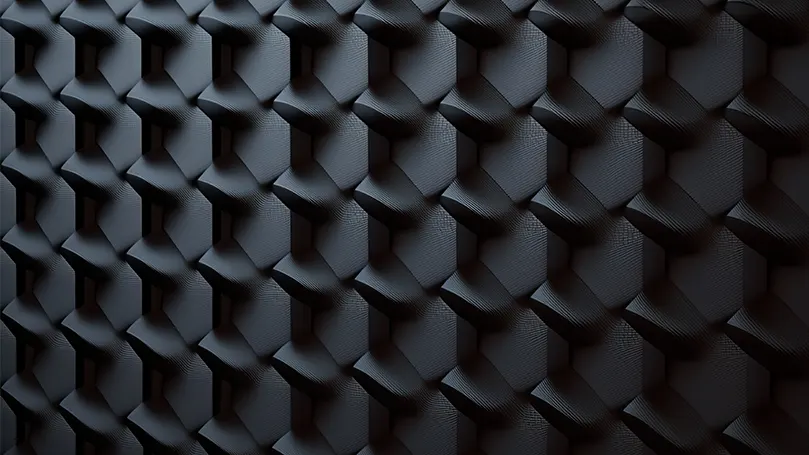Check whether the apartment/house has good soundproofing
Hindsight is always 20/20, so we suspect that this tip won't be useful for a lot of you. However, if you're still in the preparation phase and haven't signed a lease, it's your best course of action. After all, it's a lot easier to simply avoid the issue altogether than to have to fix it after the fact.
But how do you know if a house/apartment building is soundproof? Well, it isn't an exact science. There are a few things you can do in order to get a rough estimate.
Ask how old the apartment building is
As per the UK Building Compliance regulations, most newer buildings have to pass a certain level of soundproofing. So, if the building is relatively new, there's a good chance that you won't have many issues. On the other hand, if the building is a bit older and hasn't seen any major renovations, it could be a toss-up.
We asked the CEO and founder of Next Modular, Joel Comino for a comment on the matter, to which they replied: “Generally, modular or prefabricated houses have walls between each unit, making it automatically soundproof or at least more resistant to sounds than some traditional stick-built homes”. So, this is another factor worth considering before moving in.
Observe how the apartment/house is built
While not an exact science, there are a few things you can look out for when it comes to judging how good the sound insulation is. For example, check how thick the walls are. Thin walls will carry sound over without putting up much of a fight.
The same goes for the windows and doors. Generally speaking, the thicker and heavier they are, the better the soundproofing is likely going to be. Even if you live in a house, this is extremely important if there's a highway nearby or if planes tend to fly overhead. And if you happen to see sound panels, you're more than likely safe.
Once again turning to Joel, they point out the following two factors: “Windows with double-glazed panes and special noise reduction film can help to reduce street noise while dampening materials can be used to soundproof the walls.” But also: “Hardwood or laminate flooring is more effective than carpets when it comes to reducing sound transmission.”
So, keep an eye out for all these elements when you enter your home-to-be. That way you should get a rough idea of what you're dealing with.
Check how well sound carries over

If the previous two tips were a bit too vague, this one should be more to your liking. After all, if you test the soundproofing yourself, you'll know exactly what you're getting into. And the way to do this is quite simple. First off, just go inside and listen for outside unwanted noise.
Be it the neighbours, the street outside, or a barking dog three houses down – if you can hear it now, you'll probably hear it at night too. If it passes that test, move on to step number two.
Using an app, measure the decibel levels of a certain room. Then go outside or to the next room over and play some loud music. Then simply walk over to the original room and measure the decibel levels again. If there's a drastic difference, odds are that the walls are not soundproof at all. No soundproofing means it's up to your neighbours and traffic whether you'll have trouble falling asleep at night.
We also asked a real estate agent, Shaun Martin from WeBuyHousesDenver about other tell-tale signs that a house has bad soundproofing. They provided us with the following two simple methods: “Firstly, If you notice a thin layer of dust on window sills or other surfaces this could be a sign of air leaks in the room which can let sound in and out”. “Secondly, If the walls and ceilings feel hollow when you tap them, then it could be a sign that there is not enough insulation in the room to help soundproof it from outside noise”.
Soundproof your room
If you've already moved into your new home and are only now realising what a noisy environment you've gotten yourself into – don't worry. While soundproofing your room isn't all that simple, it's definitely achievable. And it's definitely worth it in the long run if it means being able to fall asleep within minutes.
Close up any gaps
Even a thin wall is better than no wall at all. That's because sound travels much more efficiently through air than through matter. That much is obvious. However, people sometimes underestimate how much even the smallest cracks can take away from the soundproofing of a given room.
So, closely inspect your bedroom, or the entire flat/house, and search for any cracks or dents. Once that is over with, turn your attention to the doors and windows. Odds are that they're not perfectly snug with the frame/wall. So use flexible polyurethane or latex caulk in order to completely seal them up. This is especially important for your bedroom window.
Then move on to all the wires and pipes going in or out of your apartment. Use a safe foam in order to seal up gaps between them and the wall. Lastly, close up any miscellaneous holes, like mail slots, if you want to keep all the ambient sounds of the outdoors and your neighbours out of your room. As a little bonus, this approach also helps keep your room warm during winter.
Get soundproof wall panels and/or acoustic blankets

Wall panels are generally good if you want a sound proof room, as they add a buffer layer between you and the wall. However, if you get specialised panels that have a noise reduction rating of 0.85 or more, the results will be even more noticeable!
Plus, when it comes to these panels there's the added benefit of making your room less echoey. This is why you often see music producers or online creators have their entire rooms covered in these foamy panels. Acoustic blankets share all of the same traits although they're better suited as a short-term solution. After all, they don't blend in with the rest of the room quite as well as acoustic panels.
Change the doors and windows
Just like thin walls do very little to stop ambient noise, thin doors and windows might just be the cause of your frustration. Especially when it comes to your front door if you live in a noisy neighbourhood. So, if possible, swap them out with thicker, heavier models as they're going to be a much tougher opponent for the sound waves trying to get inside.
However, this mostly just helps with keeping outside noise out. So, if you share a wall with a noisy neighbour or they live above/below you – the following tip should be of more use.
Get thick curtains and carpets
This tip is a less extreme (and cheaper) version of the previous one, but it operates by the same logic. The more buffer space you can create to soak up and dampen the noise the better you'll be. Plus, having a thick carpet can especially help if you live above some really noisy neighbours.
After all, you can't put panels on the floor and since the noise isn't coming through the walls – quite a few of the previous tips won't help. And who doesn't want a nice, thick rug or carpet?
Use the furniture to your advantage
If you don't want to spend a cent on soundproofing, this is your best. That being said, don't expect that drastic of a difference. This basically revolves around moving furniture around in order to keep some of the unwanted noises away from you.
For example, if you can get the bed away from the wall where the noise is coming from, things will be a bit quieter. You can then put your old dresser against that wall for some added insulation. And if the noise is only coming from one room, for example, the neighbour's kitchen that's right above your bedroom, see if you can move your bed to a different room altogether. And on a similar note, try getting the best mattress that you can find, as you want to fall asleep and stay asleep as quickly as possible.
Call the professionals
If you don't care much about the price and value your peace and quiet above all else – getting a professional is your best bet. With just one Google search you can find reputable firms that do wall, floor, and even ceiling soundproofing – so you're covered on all bases.
It can be a bit pricey and it's not something that can be done in 20 minutes. However, if you're a light sleeper and have very loud neighbours, it will likely be worth it in the long run.
Mask the noise
If your approach in life is to fight fire with fire, this segment should be right up your alley. Jokes aside, masking the unwanted noise with something a bit more pleasant can make it a lot easier to fall asleep. For one, it's easier to zone out whatever is making the noise. Secondly, it can make for a good bedtime routine – which has plenty of benefits by itself.
Get a white noise machine

White noise machines have become rather popular in the past few years and for good reason. Many people have reported feeling more at ease and relaxed with one of these babies in the room as white noise is generally very calming.
Plus, it can help drown out noisy neighbours and other noise pollution. So, even though the neighbours and cars are still going to be as loud as ever, even your light sleep won't suffer as much. And if you'd like some recommendations, here are our personal picks for the best white noise machines in the UK.
Have other ambient noise
If you don't feel like or can't afford to get a white noise machine, there are still a few things you could do. For one, you can just play white noise on your phone. Alternatively, you could play relaxing ambient sounds or even music as well. However, we will recommend putting on instrumental music, as falling asleep can be difficult if you're singing along to your favourite hits the entire time.
Aside from that, you can turn on a fan or the air conditioner, or even the television. Although that latter point can backfire if you get jumpscared by commercials. Just pick anything that plays a consistent sound, preferably a relaxing one.
Block out the noise
This is probably the first thought most people would have, which is why we're only now mentioning it. That being said, completely blocking out the noise is a very effective method that usually doesn't cost all that much – so, it's still worth highlighting.
Get noise-cancelling headphones

Noise-cancelling earphones/headphones or even just ear plugs can make your life a lot easier. If you get a decent model, they can completely block out any noise, meaning that your neighbours can be as loud as they want.
Generally speaking, headphones are probably going to be more effective. This is because they can cover your entire ear and make a tight seal around it. That being said, they're also a bit more difficult to sleep with if you usually sleep on your side. Ear plugs on the other hand usually don't bring about any major discomfort but they can fall out during the night and will likely let some of the noise get through.
That being said, there are plenty of gadgets in this niche. And some of them get very creative when it comes to blocking out noise while also allowing you to sleep like a baby. We recommend reading our “top headphones for pleasant sleep” article if you want to see a few examples of what we mean.
Stop the neighbours
If the noise coming from your neighbours is intentional and preventable, like arguing, playing music, or door slamming – you can always talk to them or the authorities. That being said, if it's something like snoring, you're out of luck.
Talk to them directly
In the best-case scenario, your noise problem can be solved with a simple chat. If we give them the benefit of a doubt, maybe they simply aren't aware of how clearly you can hear them. And once they've been notified, they can stop doing whatever they were doing.
If you want to be passive-aggressive, you can also send a message by putting some music on yourself but we don't recommend this strategy. After all, you'll probably startle your other neighbours and it's always better to be direct about these kinds of things.
Lodge a complaint

If you live in an apartment building, you can always talk to the landlord or whoever else is in charge. If said neighbour has been doing this for a while, odds are that other people have complained as well at some point. And then whether you want to file a noise complaint or just give them a warning is up to you.
Either way it's important to value your own sanity. So, while we're aware that some people don't like getting others into trouble or burning bridges, sometimes you have no other choice.
Call the police if you don't know how to sleep with noisy neighbours
If all else fails, getting the authorities involved is your best bet. And if it was shouting that kept you up all night, the situation might even need to be handled by the police regardless of just the noise they make.
We're sure many people would be a bit hesitant about doing this, which is why we put it at the end. However, sometimes it's the best thing you can do. After all, you don't owe it to anybody to stay awake all night just so that they can blast their favourite tracks or have shouting matches.
Get better sleep
The last tip we'd like to talk about is something you should do regardless of whether you have noisy neighbours or not. That being said, it can help quite a bit if you simply fall asleep before the chaos starts and sleep tightly enough to breeze through the entire thing.
Get a consistent bed schedule

Alternating and sticking to a bed schedule can help you in two major ways. Firstly, you can make it so that you're already fast asleep by the time the noise usually starts. And since it's more difficult to be woken up once you're already in deep sleep, you should be relatively safe.
Secondly, having a consistent schedule can help you fall asleep in general. This means that even though it's loud, you can possibly drift off to sleep out of pure habit. That being said, altering your sleeping schedule isn't always possible and you will cycle back into a light sleep after around 90 minutes – so this plan isn't foolproof on its own.
Know how to relax
A big factor when it comes to noisy neighbours keeping you up is the stress that comes along with it. This is because you become more irritable and your cortisol levels go through the roof – making sleep more difficult to come naturally.
So, having some breathing exercises on hand or even a good weighted blanket can help move things along. This is also another possible benefit of having a white noise machine! So, try out some relaxation exercises and see what works best for you.
Clean up your sleep hygiene
Sleep hygiene is an umbrella term for all of the little things you can do in order to make sleep come more naturally. On their own, they usually don't change things too much and take some time to get used to and remember. However, once you have them all down, you will be able to fall asleep with your eyes closed! Oh, wait.
So, to make things simpler here's our complete sleep hygiene guide. Hopefully, it will make it so that you're sleeping like a log regardless of how noisy your neighbours can get.
Spread the word
Recommended reading:















There are no comments yet
"*" indicates required fields